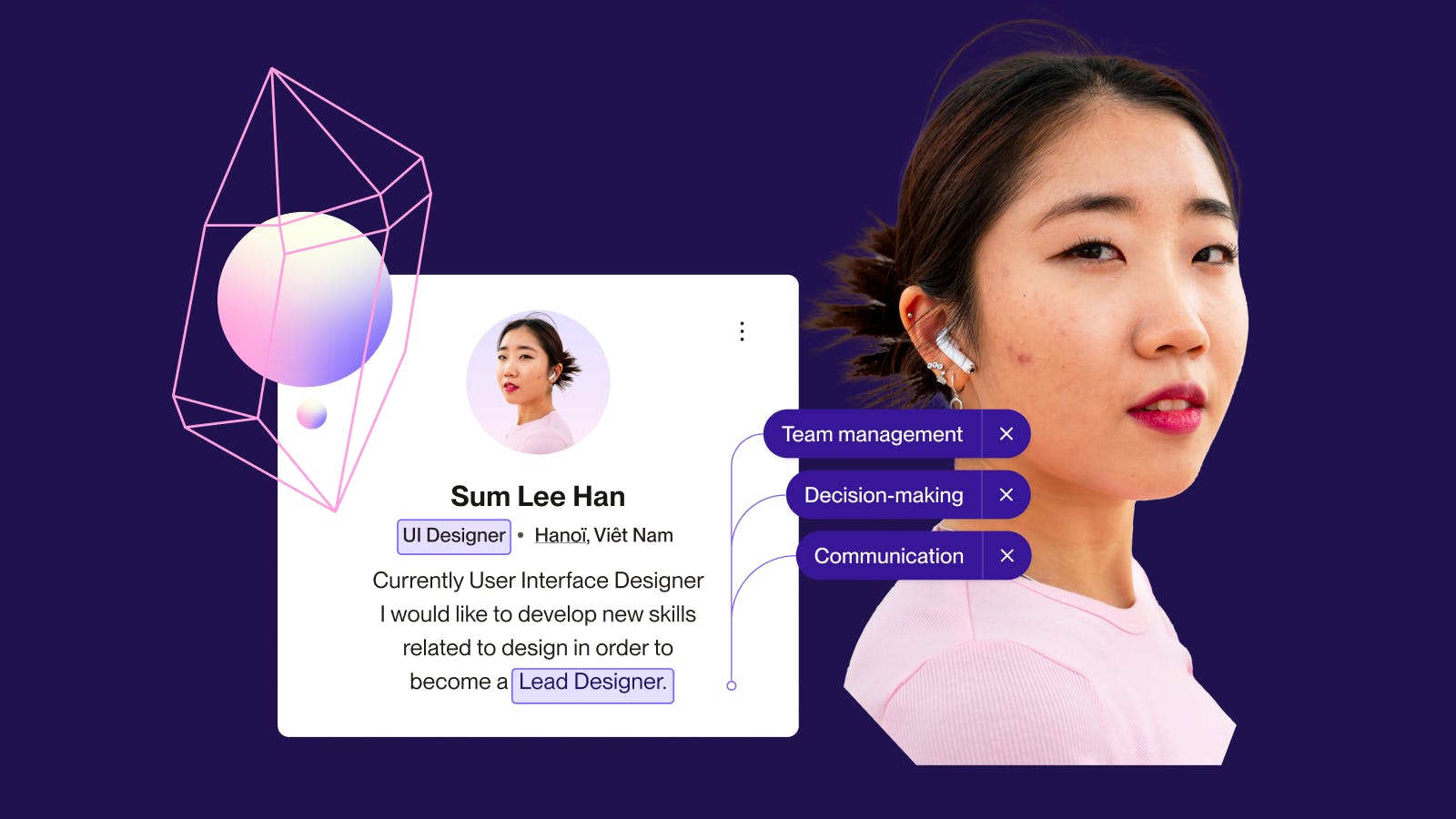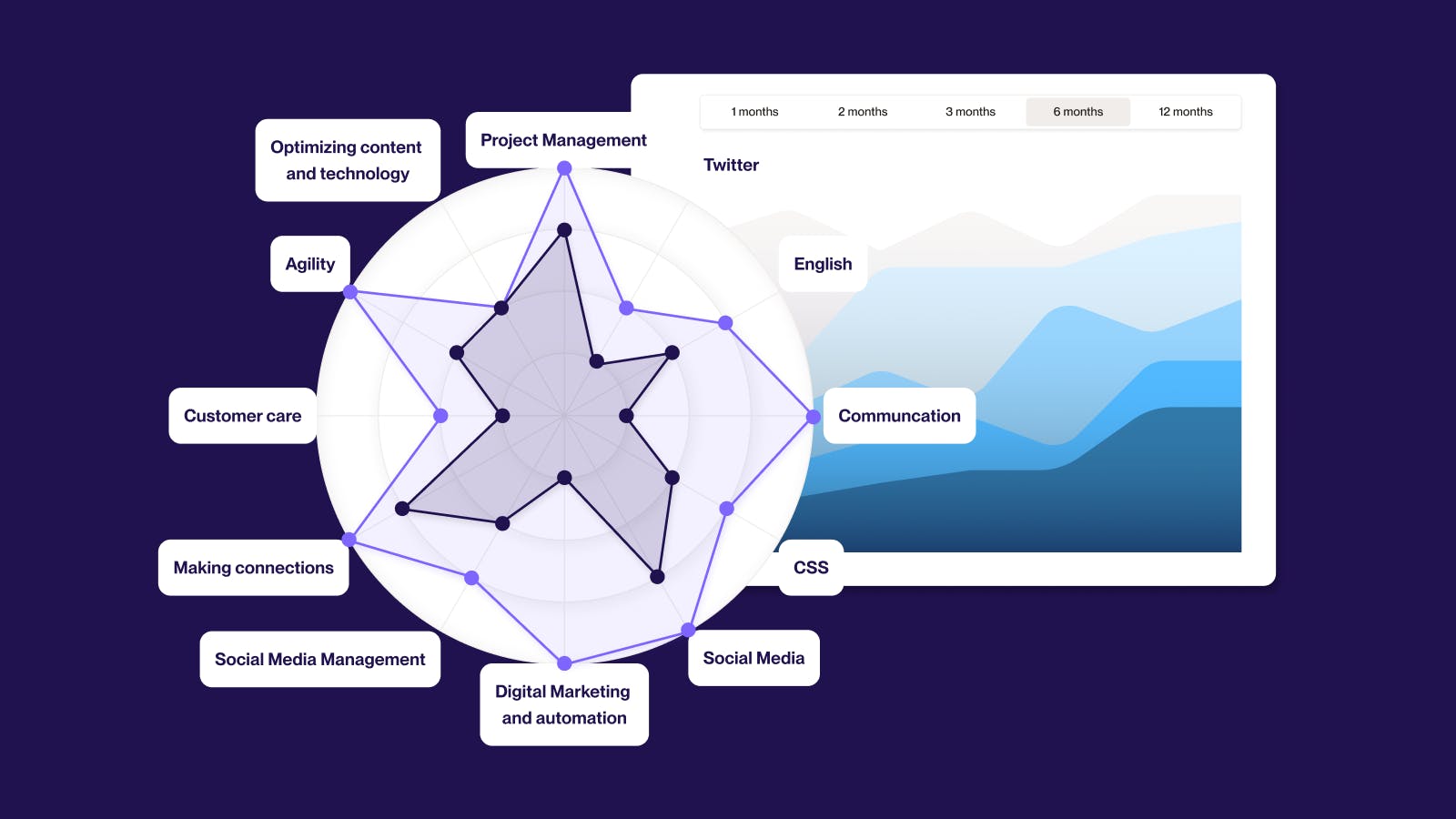Your guide to skills management tools
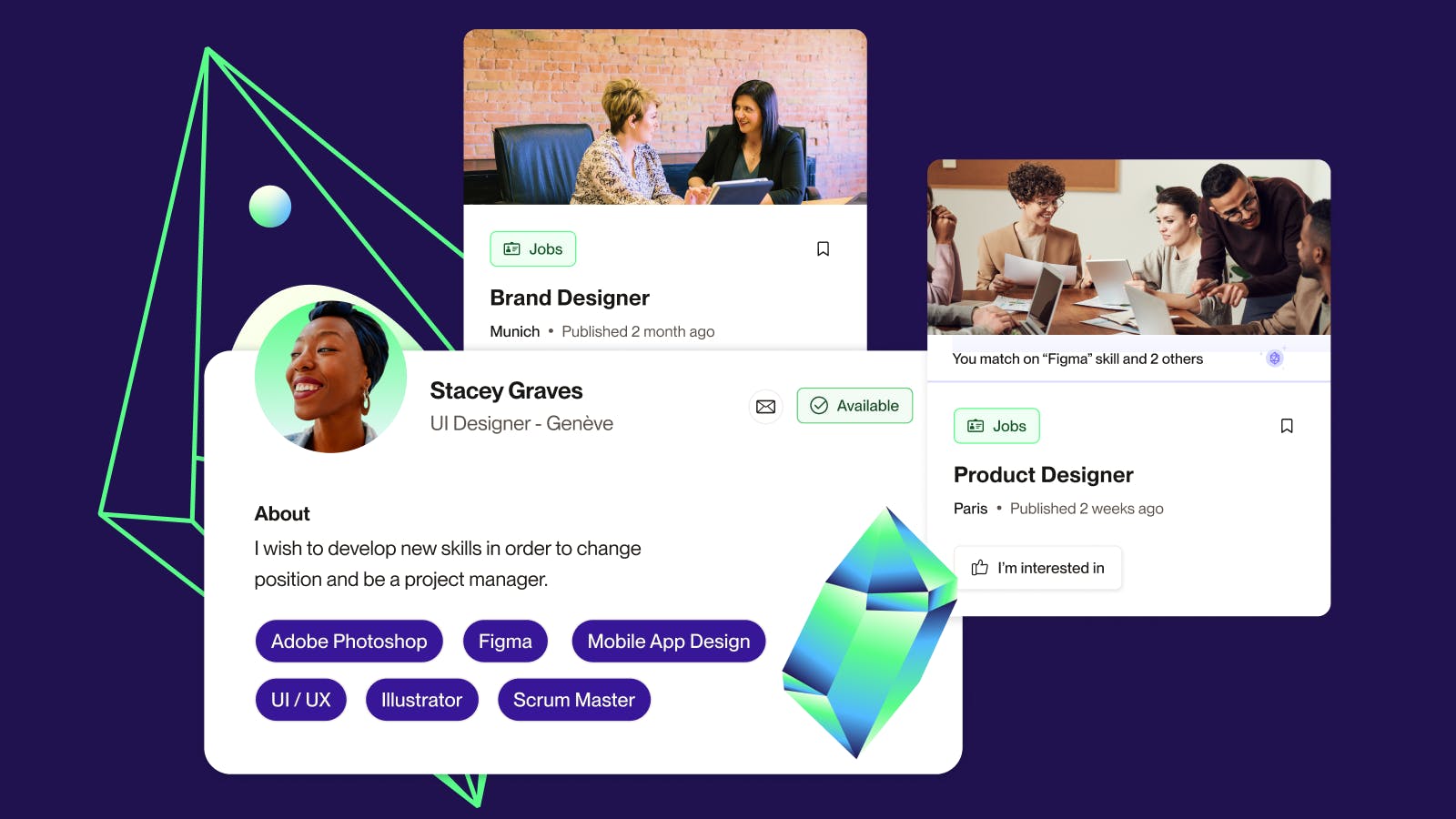
Just as Thor needs his hammer to be even more powerful, your company needs tools to improve and simplify its skills management.
In today's ever-changing job market, companies are faced with the need to maximize the efficiency and performance of their teams in order to remain competitive. Skills management has become an essential element in achieving this, enabling organizations to leverage their talents and foster their development, while remaining high-performance. To achieve this, they rely on a variety of strategic tools and techniques to facilitate the identification, assessment and optimization of skills within the company.
In this article, we’ll tell you everything you need to know about how to apply skills management and which tools are relevant to facilitate it!
What is skills management? Definition and benefits
Let’s recap briefly.
Skills management is the process of identifying, assessing and developing employee skills, in alignment with corporate objectives.
It goes beyond the simple assessment of qualifications and experience, and includes people's behavioral, technical and interpersonal skills.
The ultimate aim is to ensure that every employee has the skills needed to successfully accomplish the tasks assigned to them, in line with the company's overall strategy.
Today, skills management is essential to any modern, agile company. The benefits include:
- Talent identification: Efficient skills management enables you to identify internal or external talent who will perform well to improve results. You'll be able to find the right skills for existing internal positions, as well as develop the skills of loyal employees.
- Talent retention (or loyalty): With skills management, you can offer appropriate training and professional development to each and every one of your employees. An employee who has opportunities for advancement will be more motivated and engaged, which in turn will increase loyalty.
- Individual and collective expertise: Skills management enables the exchange of skills between peers. New talent has much to contribute, just as existing employees can train them. This sharing and collaboration enables collective learning and cultivates collective intelligence and communities of experts.
Skills management strategies
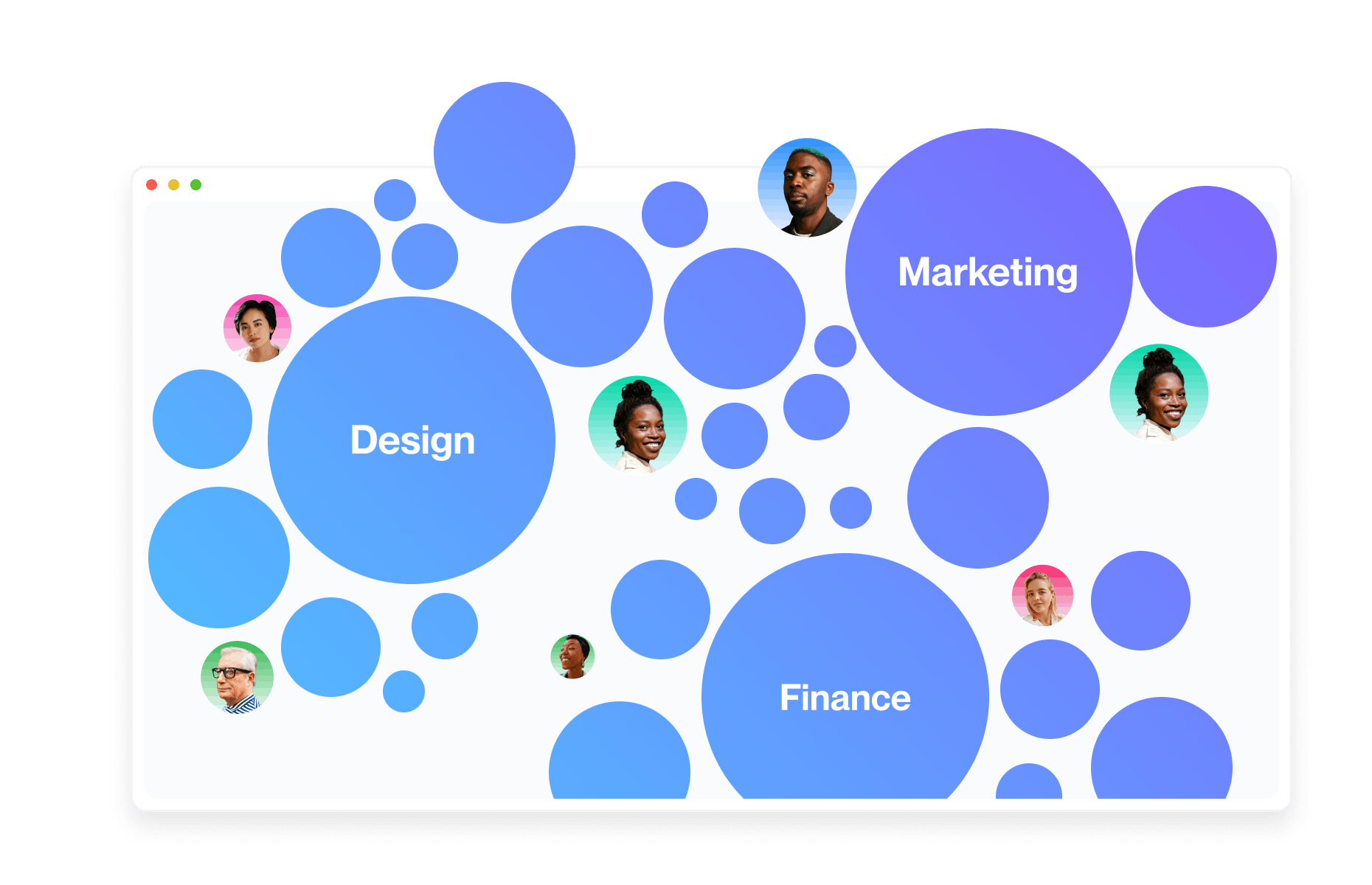
There are several strategies you can implement to manage your skills, including:
Skills assessments: A thorough assessment of each employee's current skills enables you to find out which skills are present in the company. This can be achieved through individual assessments, development interviews, manager assessments and group assessments.
Skill gap identification: By identifying existing skills, you can see which skills your employees do not yet possess, but which are necessary for their current or future jobs. You can thus identify the gaps between the skills required and those already possessed by your employees, in order to build a development and skills enhancement plan.
Individual development planning: Establish individual development plans for each employee, offering them personalized training and learning opportunities. These plans must be aligned with the company's objectives and the employee's career aspirations. Thanks to an increase in skills, your employees will be more agile and ready for today and tomorrow!
Continuous training: By encouraging a culture of continuous training within the company, you can enhance your employees' employability and motivate them. Setting up training programs, workshops, conferences and online resources accessible to employees enable them to develop their skills on an ongoing basis.
Talent management and internal mobility: Identify promising talent within the company and foster their development. Encouraging internal mobility also gives employees the opportunity to diversify their skills and occupy different positions according to the company's needs, in line with their ambitions and skills.
Progress monitoring and evaluation: Finally, you can set up a monitoring system to regularly assess your employees' progress in developing their skills. These assessments enable you to adjust development plans and ensure that skills targets are met, while providing visibility on recently acquired or improved skills.
Getting started
A diagnostic phase is crucial to the success of a skills management project. Ask yourself the following questions:
- Do I know my current skills?
- Are job descriptions up to date?
- What are the key skills necessary for today and tomorrow?
- How can I acquire or develop these key skills?
As a reminder, you can follow this 5-step guide to set up your skills management strategy:
- Take stock to define the company's strategy
- Assess needs
- Rely on existing resources
- Integrate Strategic Workforce Planning
- Formulate action plans
- Monitor development
Once your strategy is in place, you'll be able to establish a real-time view of needs, and measure the gap between existing skills and jobs and those you need, using the following means:
- Skills identification and assessment: annual and professional interviews, skills mapping and repository, job repository, satisfaction survey, performance indicators...
- Skills development: internal and external training plans and initiatives, integration and onboarding programs, VAE, empowerment, etc.
- Career and mobility management: replacement plan, replacement organization chart, mobility gateways, etc.
- Recruitment: recruitment plan, job offers, selection and decision-making tools...
Of course, to ensure its success, you'll need to include the whole company, i.e. the management who steer the project, the managers who are at the forefront of understanding and assessing the skills of their teams, and the employees who benefit from this plan.
Understanding types of skills management tools

Once you know how to manage your skills, you need to know the tools to make the job easier!
Skills management tools encompass a range of solutions, software and procedures designed to collect, assess, monitor and develop employees' skills, be they hard skills, soft skills, hidden talents or career aspirations, in alignment with the different strategies outlined above.
Companies can use skills management tools to make more informed decisions on recruitment, training, staffing and succession planning.
By facilitating the alignment of individual skills with overall corporate objectives, these tools help boost innovation, productivity and employee satisfaction. Skills management tools also play a crucial role in creating an agile, high-performance workforce.
In essence, there are two primary tools you need for effective skills management: a skills framework (sometimes called a skills repository or skills ontology) and a skills management software. The former is essential for having a real-time view on your company skills, the latter is essential for ensuring — with minimum work for your HR and managers — that view is in fact "real-time" and up-to-date.
Skills frameworks
The skills framework is an essential tool for your skills management. Having a dynamic skills framework enables you to manage your skills with agility, so as not to lag behind the competition. It enables you to map the skills of each employee in real time, for each job within the company.
Why your skills framework needs to be dynamic
The right HR skills management solution can provide a dynamic skills framework that allows you to continuously identify and manage all your talents!
Some solutions, like 365Talents, also leverage skills self-declaration to discover all your employees' talents, even the hidden ones. Everyone can participate in the identification of skills to feed into the company's skills management system, offering a skills map as close to the reality on the ground as possible.
A closed, pre-built framework:
- Mapping that may already be obsolete when you start to formalize it
- A continual updating process you'll have to carry out yourself
- A waste of time!
A dynamic, open and living skills map and framework:
- Easily updateable skills mapping and framework
- Continuous employee development with the identification of skills and professions
- A simple global view of all company skills
The aim of any skills framework is to list all skills in one place, in a single source of truth to be used by the HR department and managers. You centralize information in real time, and are able to update it continuously in an easily accessible tool.
However, building a skills framework on your own remains a major time investment. You'll be collecting and continuously updating a lot of data, which can take up a lot of time and energy if it's not well organized. So, how do you manage this HR data at the heart of your skills management? How often do you update it? Weekly? Every month? And who will do it? HR? Managers? Do they have all the knowledge they need of each individual's skills and domains?
Fortunately, there's technology that can make this job exponentially easier, simplifying and updating your skills framework automatically.
Skills management software
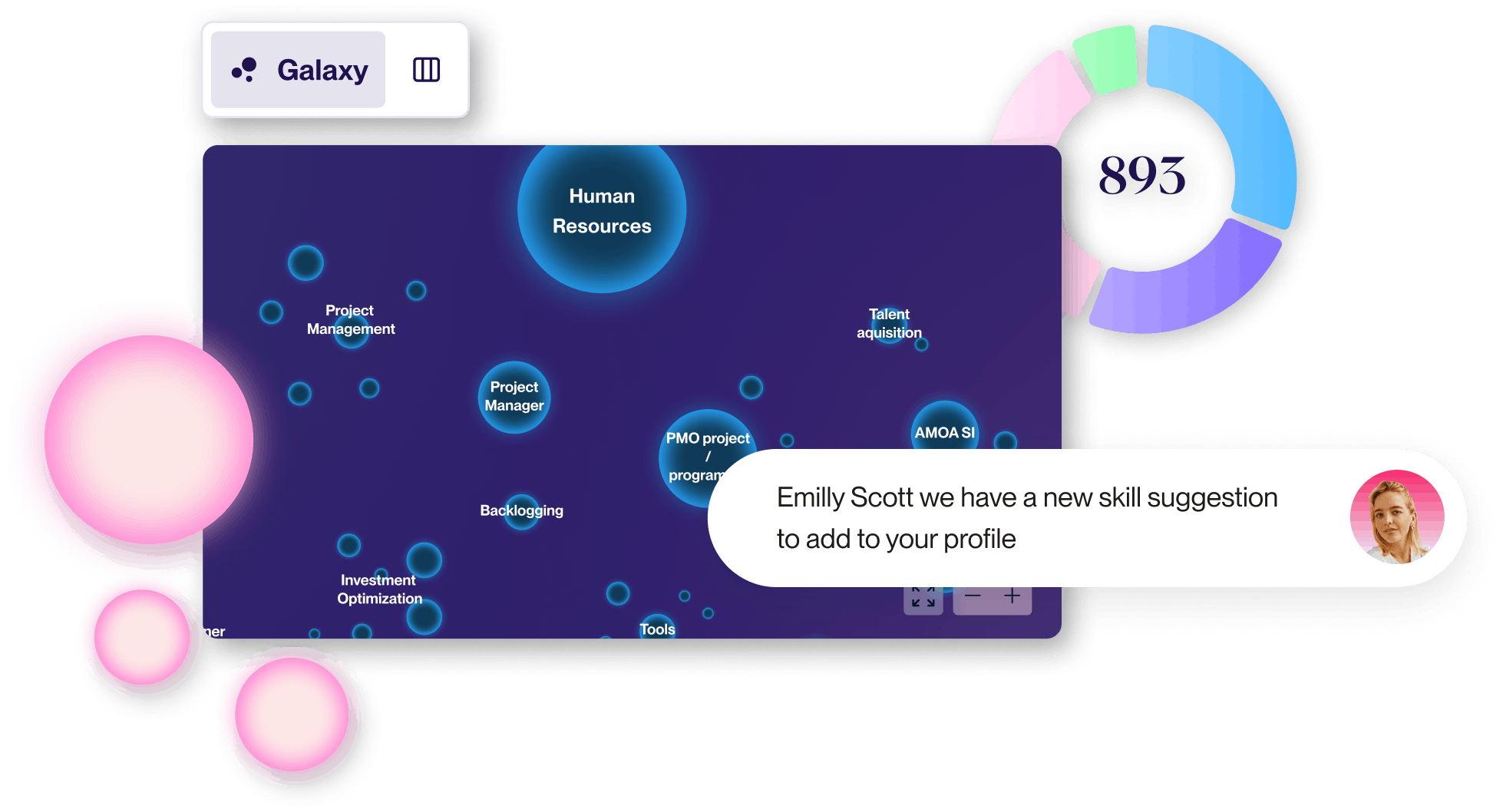
Skills management software can enable you to facilitate and optimize your approach. It responds to the challenges of centralizing essential data and putting them at the service of skills development.
Talent management solutions provide complete visibility of your skills. They automate processes, optimize and update data, and increase employee engagement in data sharing. As a result, your employees' skills and careers will no longer hold any secrets.
In turn, your company can benefit from:
- Considerable time savings in identifying skills, talents and needs
- Better matching between company needs and employee requirements
- Dynamic, up-to-date jobs mapping
- Rapid, dynamic skills databases
- Better assessment of internal and future changes
Powered by AI, 365Talents carries out skills mapping, updated in real time, thus providing a dynamic skills framework. Our semantic analysis technology makes it possible to capture all the talents of your employees. 365Talents identifies and synthesizes the same skills even if they have a different name or language.
Then, our platform suggests assignments, mobilities and trainings based on the desires of your employees and the needs of the company. This makes it easy to narrow skills gaps, improve development and upskilling, in just a few clicks.
By allowing you to optimize your skills management, 365Talents helps you:
- Future-proof your strategy with intelligent suggestions and analytics to prepare your employees for the future
- Engage and retain talent thanks to a talent experience that empowers your employees in their development
- Improve internal mobility by recruiting more quickly for projects, assignments and open positions thanks to intelligent suggestions and better visibility on your internal candidates
- Make your employees active participants in their professional career, by anticipating their development and suggesting relevant resources to them
- Gain insights into skills and trends to close skills gaps and plan for the future








How we build your skills ontology and framework: The Tetris game
365Talents helps you to create a unique, accurate, and concise skills framework that aligns with your organization's specific skills context and culture. The framework is designed to be accurate, tailored to the specific abilities of your employees, and constantly updated to meet HR use cases and stay in sync with the latest trends. It is also designed to be dynamic, operating seamlessly within the flow of work, making it an invaluable tool for HR professionals. Most importantly, skills data should be accessible to all other HR processes and systems, serving as a common language for Talent Management and Talent Experience.
To achieve these objectives effectively, we use both top-down and bottom-up approaches to help you build a specific skills framework. Imagine your skills framework like a Tetris game board.
Your framework is a fusion of various sources that, through smart and strategic interpretation and manipulation, can be fit together for a seamless, rock-solid view of your company’s current skills.
No matter the shape, size or quantity of the skills data you currently have, we can integrate additional data or complement it with our existing frameworks, filling in any gaps you might have and mirroring your historical approach.
Once everything is live, you have your centralized and dynamic skills framework. Our technology takes over, performing automatic categorization, synonym detection, semantic matching, language detection, and automatic translation.
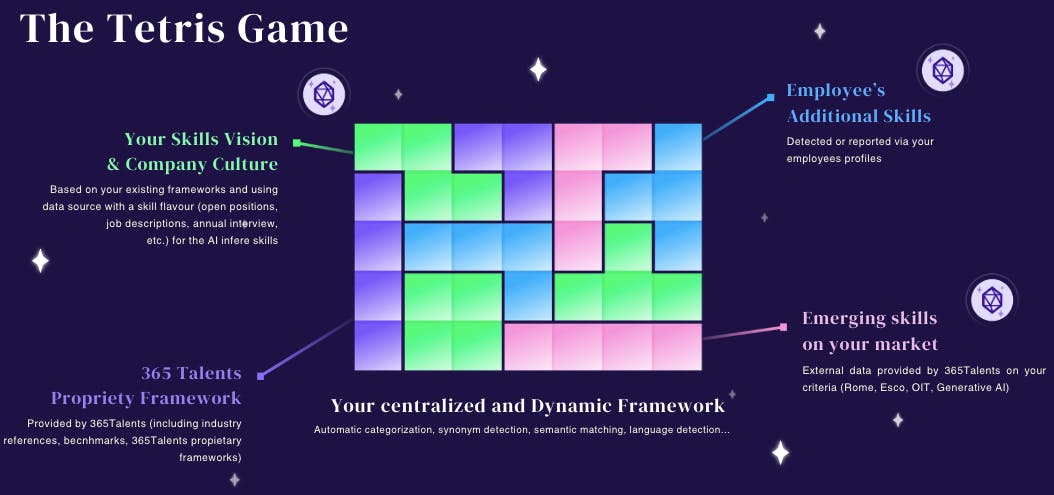
Ready to learn more about skills management and the 365Talents approach? Get in touch with our team today Get in touch with our team today.


Discover 365Talents' Skills Management Guide
Read on and discover the power of skills management and how 365Talents can empower your organization to reach success.





